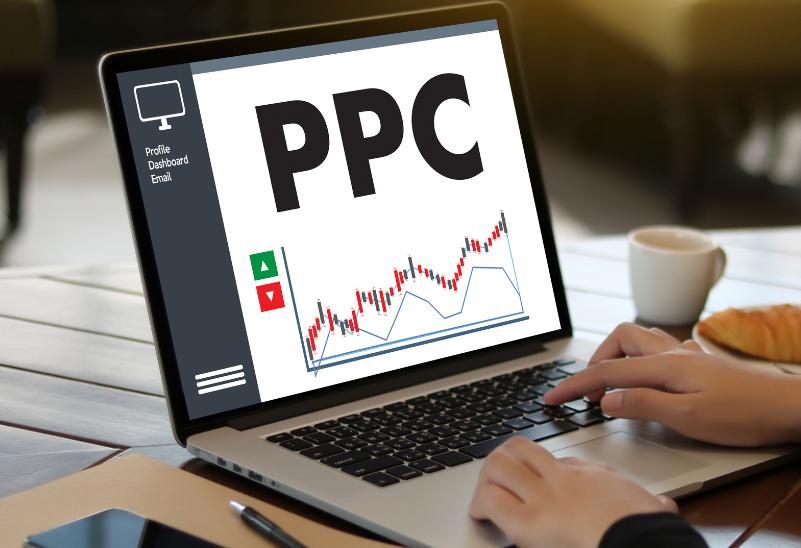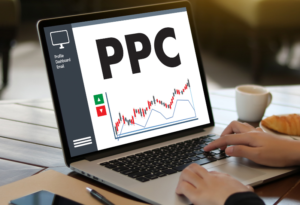In the ever-evolving world of e-commerce, businesses constantly seek new and effective ways to drive sales and increase revenue. One powerful method to boost E-Commerce sales with PPC that has proven to be highly effective is Pay-Per-Click (PPC) advertising, particularly when executed through Google Ads. Leveraging PPC strategies can significantly boost your e-commerce sales, offering flexibility, precision, and scalability.
Understanding PPC and Its Benefits
PPC advertising is a model of internet marketing where advertisers pay a fee each time one of their ads is clicked. Essentially, it’s a way of buying visits to your site, rather than attempting to “earn” those visits organically. Google Ads, being one of the most popular PPC platforms, allows businesses to create ads that appear on Google’s search engine results pages (SERPs).
The benefits of PPC advertising for e-commerce businesses are manifold:
- Immediate Results: Unlike SEO, which can take months to show results, PPC ads can generate traffic almost instantly after launch.
- Targeted Reach: PPC allows you to target specific demographics, locations, and even times of day, ensuring your ads reach the right audience.
- Measurable ROI: With PPC, you can track and measure the effectiveness of your campaigns, making it easier to see where your money is going and what you’re getting in return.
- Cost Control: You set your budget and only pay when someone clicks on your ad, making it a cost-effective way to drive traffic and sales.
Why Boost E-Commerce Sales with PPC Remote Management?
Remote work has become increasingly popular, and managing PPC campaigns remotely offers numerous advantages:
- Access to Global Talent: You can hire the best PPC experts from around the world, not limited by geographical boundaries.
- Cost Savings: Remote work often reduces overhead costs, allowing you to allocate more budget to your PPC campaigns.
- Flexibility: Remote teams can work across different time zones, providing round-the-clock management and optimization of your campaigns.
- Scalability: Remote PPC management allows you to easily scale your efforts up or down based on your needs and budget.
Setting Up Your Google Ads Campaign
To get started with boosting your e-commerce sales through remote PPC strategies using Google Ads, follow these steps:
1. Define Your Goals
Before you launch a campaign, it’s crucial to define what you want to achieve. Common goals for e-commerce businesses include increasing website traffic, boosting sales, promoting specific products, or growing your customer base.
2. Conduct Keyword Research
Keyword research is the foundation of a successful PPC campaign. Use tools like Google Keyword Planner, SEMrush, or Ahrefs to identify keywords that are relevant to your products and have a high search volume but relatively low competition.
3. Create Compelling Ads
Your ads need to capture the attention of your target audience and compel them to click. This involves writing engaging headlines, crafting persuasive ad copy, and using high-quality images or videos. Make sure your ads highlight the unique selling points of your products.
4. Set Up Targeting Options
Google Ads offers various targeting options, including location, demographics, device type, and more. Tailor your targeting settings to reach your ideal customers. For e-commerce businesses, it’s often effective to target users based on their browsing behavior and past purchase history.
5. Optimize Landing Pages
The landing page is where potential customers land after clicking on your ad. It’s essential to ensure that your landing pages are optimized for conversions. This means having a clear call-to-action, easy navigation, fast loading times, and a mobile-friendly design.
Managing and Optimizing Your Campaigns
Once your campaigns are up and running, ongoing management and optimization are key to maximizing your ROI. Here’s how remote PPC strategies can help:
1. Monitor Performance
Use Google Ads’ reporting tools to monitor the performance of your campaigns. Track metrics such as click-through rates (CTR), conversion rates, cost per click (CPC), and return on ad spend (ROAS). This data will help you understand what’s working and what’s not.
2. A/B Testing
A/B testing involves running two versions of an ad or landing page to see which one performs better. Continuously test different elements of your ads, such as headlines, images, and calls-to-action, to optimize for the best results.
3. Adjust Bidding Strategies
Google Ads offers several bidding strategies, including manual CPC, enhanced CPC, target CPA, and more. Experiment with different bidding strategies to find the one that delivers the best results for your campaigns.
4. Utilize Remarketing
Remarketing allows you to show ads to users who have previously visited your website but didn’t make a purchase. This is a powerful way to re-engage potential customers and encourage them to complete their purchase.
5. Collaborate with Your Remote Team
Effective communication and collaboration with your remote PPC team are crucial. Use project management tools like Trello, Asana, or Slack to keep everyone on the same page and ensure that tasks are completed efficiently.
Case Study: Success & Boost E-Commerce Sales with PPC Strategies
Let’s look at a case study of an e-commerce business that successfully boosted its sales using remote PPC strategies with Google Ads.
Case Study: XYZ E-Commerce
XYZ E-Commerce, an online retailer specializing in eco-friendly products, wanted to increase its online sales. They decided to leverage remote PPC strategies using Google Ads to achieve their goal.
Goals
- Increase website traffic by 50% in six months
- Boost online sales by 30% in six months
- Promote new product lines
Strategy
- Keyword Research: XYZ E-Commerce conducted thorough keyword research to identify high-performing keywords related to their products, such as “eco-friendly home goods” and “sustainable kitchenware.”
- Ad Creation: They created compelling ads that highlighted the unique benefits of their products, such as “Shop Eco-Friendly Home Goods – Free Shipping on Orders Over $50.”
- Targeting: They targeted users in North America who showed interest in eco-friendly living and sustainable products.
- Landing Page Optimization: Their landing pages were optimized with clear calls-to-action, fast loading times, and a mobile-friendly design.
- Remarketing: They implemented remarketing campaigns to re-engage users who had visited their site but hadn’t made a purchase.
Results
- Website traffic increased by 60% in six months
- Online sales grew by 35% in six months
- The promotion of new product lines saw a 25% increase in sales
Conclusion – Boost E-Commerce Sales with PPC
In today’s competitive e-commerce landscape, leveraging remote PPC strategies using Google Ads can be a game-changer. By understanding the benefits of PPC, setting up effective campaigns, and continually optimizing your efforts, you can significantly boost your e-commerce sales. Embrace the flexibility and scalability of remote work to access top talent, reduce costs, and achieve your business goals. Start your journey today and watch your e-commerce business thrive.
Ready to take your e-commerce business to the next level? Partner with Globosoft Technologies to implement cutting-edge PPC strategies using Google Ads. Our team of expert PPC managers will help you drive targeted traffic, increase sales, and maximize your ROI. Contact us today to schedule a free consultation and discover how we can boost your e-commerce sales!








